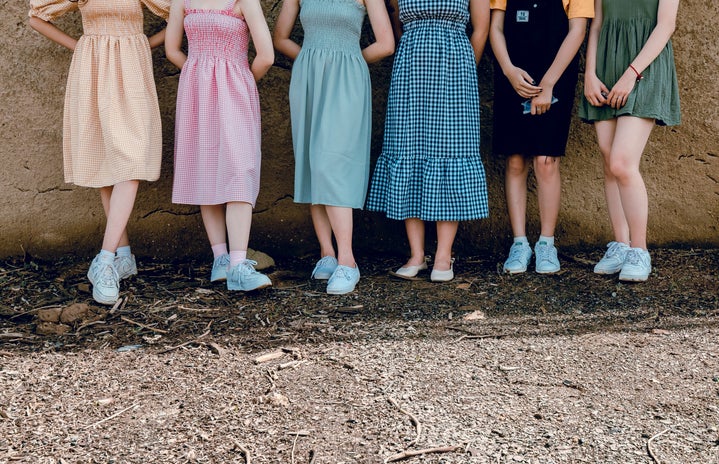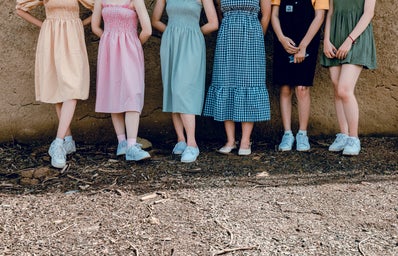Throughout history, pressure has been placed on women to be ladylike and graceful but, with the rise of feminism, women are rejecting these ideals. In some circumstances this has been taken to the extreme, cultivating a new term: the demonisation of femininity.
What is femininity?
Before diving into this article, it needs to be emphasised that there is no single definition of femininity. It is whatever you want it to be. However, before feminism secured its place in the world, to the majority of the population, femininity was a set of unwritten rules that women had to follow. They were expected to be graceful, polite and enjoy domestic activities such as cooking, sewing and cleaning.
Women would even be represented this way in films, and if they disobeyed such standards, they would be portrayed as unfavourable. As most of these expectations were created by men, many women began to reject these ideals when the feminist movement started to give them a voice. It was seen as conforming to male ideals and standards if you retained your femininity. This concept strongly secured its place in the 90s and 2000s chick flicks.
The Chick Flick
Chick Flicks are notorious for telling the story of a cheesy romance, and often appealing to teenage girls, therefore targeting a highly influential demographic group. Any representations are undoubtedly going to have a profound impact.
Many chick flicks that were released in the 90s and 2000s heavily focused upon an archetype of a ‘popular girl’ who was usually blonde, wore lots of pink and was obsessed with boys. This character would then be heavily contrasted with the protagonist who represented the complete opposite of this trope. Meanwhile, the ‘popular girl’ character was demonised and slowly, traditional femininity and bad character traits started to become synonymous of each other.
‘Mean Girls‘, released in 2004, is possibly the most famous example of a film that clearly demonises femininity. The ‘plastics’ act as the antagonists in the film and are pictured wearing pink clothes, mini skirts and talking about shopping or boys. Meanwhile, Cady’s character, the protagonist, is the exact opposite and is praised until she starts looking and acting more like the ‘plastics’. Therefore, an influential demographic could easily interpret this as shaming ‘girly girls’.
Likewise, in ‘High School Musical‘, Sharpay embodies the ‘mean girl’ trope and is repeatedly demonised throughout the franchise. A similar concept is employed in the 1999 film, ‘10 Things I Hate About You‘. Bianca possesses all of the stereotypical feminine traits and plays the role of an airhead, while Kat represents the opposite and remains a wise and intelligent character in the film. What all of these films fail to communicate is that femininity is not a setback and it is not mutually exclusive with likeability and intelligence.
The Impact
When films began creating this ‘mean girl’ trope, it was a more positive thing because traditionally feminine women had always been favoured in Hollywood, so it was time for a change. However, it is not necessary to bring others down to put a new type of woman in the spotlight, and the trope was taken too far.
Many ‘feminine’ teenage girls would begin to hide their personalities because they didn’t want to be associated with unlikeable characteristics. Furthermore, it simply created more confusion for women and repeated the judgement they have always faced when being directed by society.
Looking at our current society, the new term ‘pick me girl’ has risen. This is used when a girl rejects the traditional feminine traits, but usually supposedly in the pursuit of male attention and acceptance. Again, this contradicts previous expectations of women and proves that you can never keep up with the standards.
Femininity in 2022
In 2022, femininity does not have a single meaning. The societal expectations of women are slowly breaking down and they have more freedom to act and dress how they want. However, it is still far from perfect.
Many women have to hide their femininity in certain situations, such as workplaces, to be taken seriously and be respected. This is evidence that the frequent association of traditional femininity with lack of intelligence has had a profound impact on our society. Ultimately, the term ‘femininity’ has been incredibly objective in the past and it should now mean anything anyone makes it, rather than a concrete set of expectations.
Words by: Chloe Hill
Edited by: Laura Murphy


